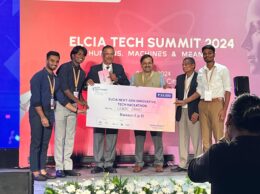Special Report, New Delhi: The online submission of applications for UGC-NET Jan 2017 has already commenced from 17 October 2016. The closing date for online submission of application is 16 November 2016. The next UGC-NET will be held on 22 January 2017 (Sunday). On behalf of UGC, the Central Board of Secondary Education is holding the National Eligibility Test (NET) for determining the eligibility of Indian nationals for the Eligibility for Assistant Professor only or Junior Research Fellowship & Eligibility for Assistant Professor Both in Indian Universities and Colleges.
Test Pattern: The candidates have already started their preparation and are fine tuning their strategy how to successfully clear the Test. The Test will have three papers while all the three papers will consist of only objective type questions, which will be held in three separate sessions as given below:
| Session | Paper | Marks | No of Questions |
Duration
|
| First | I | 100 | 60 out of which 50 question to be attempted |
1¼ Hours (09:30 A.M. to 10:45 A.M.) IST |
| Second | II | 100 | 50 questions all are compulsory | 1¼ Hours (11:15 A.M. to 12:30 P.M.) IST |
| Third | III | 150 | 75 questions all are compulsory | 2½ Hours (02:00 P.M. to 04:30 P.M.) IST |
Source: Information Bulletin of UGC-NET Jan 2017 |
||||
Paper-I shall be of general nature, intended to assess the teaching/research aptitude of the candidate. This paper will primarily be designed to test reasoning ability, comprehension, divergent thinking and general awareness of the candidate. The paper will consists of Sixty (60) multiple choice questions of 2 marks each, out of which the candidate would be required to answer any fifty (50). In case the candidate attempted more than 50 questions, the first 50 questions attempted by the candidate would be considered for evaluation.
Paper-II shall consist of 50 objective type compulsory questions based on the subject selected by the candidate. Here, each question will carry 2 marks.
Paper-III will consist of 75 objective type compulsory questions from the subject selected by the candidate. Each question of this paper will carry 2 marks.
All the questions of Paper – II and Paper – III will be compulsory, covering entire syllabus (including all electives, without options).
Historical success rate/pass rate: UGC-NET is considered as one of tough competitive tests where pass rate (% of qualified candidates) is around in the range of 1 – 1.50% for Junior Research Fellowship. As per the Annual Report of UGC 2014-15, in the UGC-NET held in June 2014, only 4,795 candidates were declared eligible out of 3.70 Lakh appeared candidates for Junior Research Fellowship and pass rate was only 1.29%. Meanwhile, in the UGC-NET held in December 2014, 3,702 candidates were declared eligible for Junior Research Fellowship, out of 4.22 lakh appeared candidates for Junior Research Fellowship and pass rate was 0.88%.
Procedure and criteria for declaration of result for NET Jan 2017:
This will comprise of following steps:
Step I: Minimum marks to be obtained in NET for considering a candidate for the award of JRF and eligibility for Assistant Professor.
The candidates are required to obtain minimum marks separately in Paper-I, Paper-II and Paper – III as given below:
| Category | Minimum Marks (%) to be obtained | ||
| Paper -I |
Paper II |
Paper-III | |
| GENERAL | 40 (40%) | 40(40%) | 75 (50%) |
| OBC (Non-creamy layer) PWD/SC/ST | 35 (35%) | 35 (35%) | 60 (40%) |
|
Source: Information Bulletin of UGC-NET Jan 2017 |
|||
Step II: Amongst those candidates who have cleared step I, a merit list will be prepared subject-wise and category-wise using the aggregate marks of all the three papers secured by such candidates.
Step III: Top 15% candidates (for each subject and category), from the merit list mentioned under step II, will be declared NET qualified for eligibility for Assistant Professor only.
Step IV: A separate merit list for the award of JRF will be prepared from amongst the NET qualified candidates figuring in the merit list prepared under step III by using the formula mentioned below:-
No. of slots under General (UR) category for JRF in a subject =
No. of candidates who have opted for JRF and are qualified for eligibility for Assistant Professor in that
subject X No. of slots available under General (UR) category
————————————- ——————————————–
Total No. of General (UR) candidates who have opted for JRF and are qualified for eligibility for Assistant
Professor
Similar formula will be used for OBC/SC/ST category and all the subjects.
The Information Bulletin of UGC- NET Jan 2017 mentioned that the above qualifying criteria is decided by UGC/CBSE is final and binding.
On behalf of UGC, CBSE will conduct NET Jan 2017 in 84 subjects at 90 selected NET Examination Cities spread across the country. The candidates who qualify for the award of Junior Research Fellowship are eligible to pursue research in the subject of their post-graduation or in a related subject and are also eligible for Assistant Professor. The universities, institutions, IITs and other national organizations may select the JRF awardees for whole time research work in accordance with the procedure prescribed by them.






